3 productivity tools to help you write a short book
Although the beauty of writing a short book is that it is do-able, your censorious, procrastinating, lizard brain can still make it hard to sit down and, er, write on a daily basis. Here are a few tools we’ve gathered to make the process easier.
Just Do It
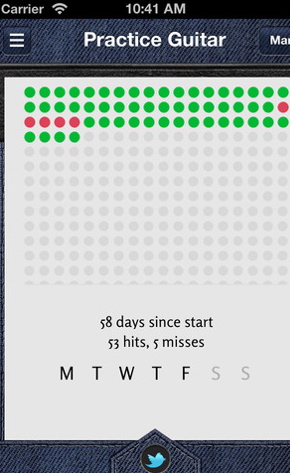 From delightful author Dan Pink comes an iPhone app suggestion, Wonderful Day. It’s marvelously simple. You define an activity (Writing, Exercise, etc.). Once a day you get a polite reminder beep. When you’ve completed your activity (it works best if you make it specific; Dan uses Write 400 Words), you mark it off and a green dot appears on the screen. Your goal is to create an unbroken succession of green dots with no red dots signaling a lapse. It’s surprisingly motivating. Just be sure to make your writing goal do-able.
From delightful author Dan Pink comes an iPhone app suggestion, Wonderful Day. It’s marvelously simple. You define an activity (Writing, Exercise, etc.). Once a day you get a polite reminder beep. When you’ve completed your activity (it works best if you make it specific; Dan uses Write 400 Words), you mark it off and a green dot appears on the screen. Your goal is to create an unbroken succession of green dots with no red dots signaling a lapse. It’s surprisingly motivating. Just be sure to make your writing goal do-able.
Block the Internet
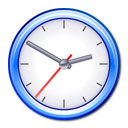 Freedom (works on both PC and Mac) is a $10 piece of software that is the ultimate distraction blocker. Download it to your computer, turn it on and it locks you out of the Internet for up to eight hours (you set the time limit). It’s been praised in the media by publications as diverse as The Economist and Lifehacker.
Freedom (works on both PC and Mac) is a $10 piece of software that is the ultimate distraction blocker. Download it to your computer, turn it on and it locks you out of the Internet for up to eight hours (you set the time limit). It’s been praised in the media by publications as diverse as The Economist and Lifehacker.
If you absolutely need to get back online you have to reboot your computer. Enough of a pain that hopefully you won’t be tempted. Writers swear by it and there is a constant stream on Twitter extolling how effective it is.
Morning Pages (aka freewriting)
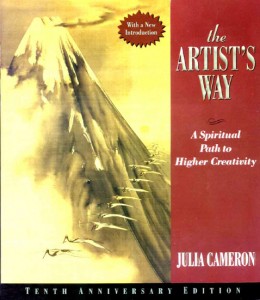 Julia Cameron published the best-selling The Artist’s Way two decades ago. I recently bumped into her book via a lovely online program, the World-Changing Writing Workshop.
Julia Cameron published the best-selling The Artist’s Way two decades ago. I recently bumped into her book via a lovely online program, the World-Changing Writing Workshop.
Workshop leaders Kyeli and Pace interviewed Julia about her famous Morning Pages, a daily practice of writing three pages, long-hand, first thing in the morning. Stream-of-consciousness and whining allowed. The point is to de-clutter your brain. And to make friends with your internal censor or editor so that it’s easier to do real creative work – including writing – later in the day.
The pages are for-your-eyes-only. You can write with your favorite pen in a beautiful notebook. Or you can write on notepaper and throw it away. You can also do your daily writing via your keyboard on a site called 750 Words. You type directly onto a blank page on the site but you can make your writing private so that no one can view it.
This approach to writing is also known as freewriting, an unblocking practice that business author Mark Levy explains with specific how-to’s in his wonderful book, The Accidental Genius.
In practice
I’ve been experimenting with all three of these tools recently and am having success getting more writing done on a daily basis. (Yes, that includes blog posts.) Too soon for a definitive report on what works best but it’s clear that steady practice and consistency are key.
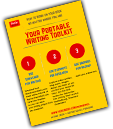
-
http://www.janetgoldstein.com/ janet goldstein
-
http://pajamaproductivity.com Annie Sisk
-
http://twitter.com/judespacks Jude Spacks
-
http://www.facebook.com/rafajaques Rafa Jaques

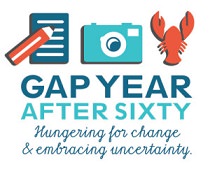 Want to reinvent your life and work after age 60? Follow Sam and me as we reinvent a yin yang life on the coast of Maine and in Brooklyn.
Want to reinvent your life and work after age 60? Follow Sam and me as we reinvent a yin yang life on the coast of Maine and in Brooklyn.







